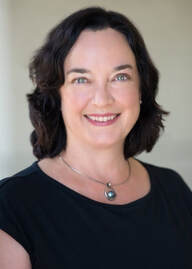 Sarah Hanawald Sarah Hanawald In a recent Pulse Post, we asked a question that we also ask in our Leadership for Advanced Independent Curriculum: how do you assess your academic program? All too frequently, one of the top answers is, “By the college list.” This answer always dismays me, so I ran it by someone who I knew had expertise on the matter: Sonia Bell, the Director of College Counseling at St. Luke’s School (CT). I recently had the chance to talk with Sonia and ask her some questions about what academic leaders can learn from college counselors. I was surprised to hear that one of her first insights was something we’ve been talking about here at One Schoolhouse for many years--the importance of a personalized experience. Sonia went on to explain that one of the roles of a college counselor is to learn all about a student, not just their academic performance in a specific course, but their interests, needs, and the quirky “extras” that help a counselor support the student and their family in finding a right fit college. How does college counseling resemble personalized learning? Most schools have outcomes that are institutionally defined--in the college process, it’s typically finding a good-fit college-placement for each graduate. The experience of achieving that objective is personalized, with a path that is unique for each student, due to the professional expertise of an educator. While independent schools excel at knowing students and building transformative learning relationships with them, every family-school relationship does not require the same attention as that built between families and college counselors and that is okay. When all is going well, it is natural that parents and guardians do not feel the need for several hour-long one-on-one conversations with a school leader. This makes the information gathered during the college counseling process a resource that may get overlooked. Leaving all that insight unexplored would be a mistake. There’s no need for academic leaders to replicate the same conversations that college counselors are having with families. However, if Academic Leaders schedule regular, structured, conversations with college counselors, they can gain insights about the student experience at school that can inform curricular and pedagogical decisions. For example, Sonia’s knowledge of how to educate parents was essential when St. Luke’s moved beyond a standardized curriculum for its advanced courses. Without a healthy professional relationship, knowledge can be locked in institutional silos. Academic Leaders--your college counselors have information you can use in your work to ensure that the student experience is mission-aligned. Schedule time with college counselors periodically to debrief these valuable fonts of information and make sure that information doesn’t stay locked away.
0 Comments
Leave a Reply. |
Don't miss our weekly blog posts by joining our newsletter mailing list below:AuthorsBrad Rathgeber (he/him/his) Archives
July 2024
Categories |

 RSS Feed
RSS Feed